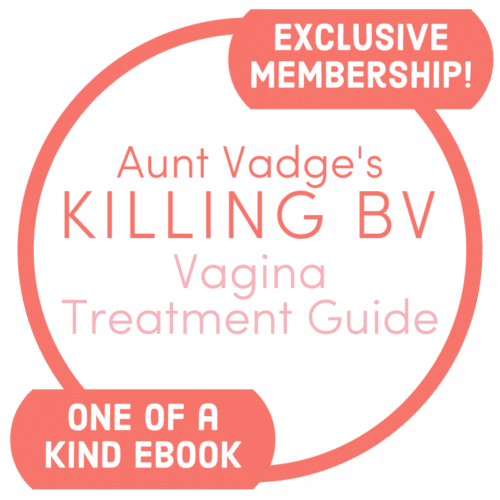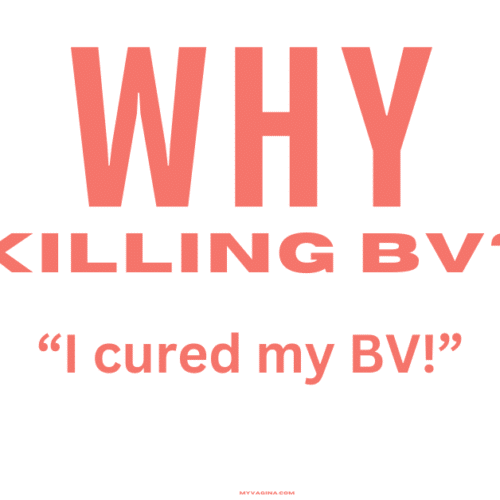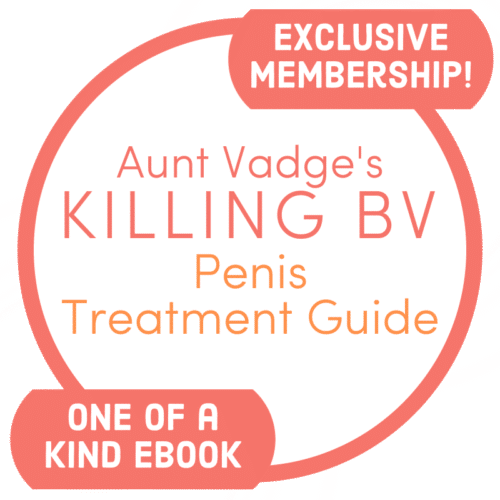Vaginal dryness can be caused by several factors, and treating vaginal dryness effectively requires identification of the cause.
There are two main stages hormonally: premenopause and postmenopause. Postmenopausally, the vagina does tend to more dryness, and treatment with oestrogen or oestrogen-like (non-drug) approaches tends to work well without too great of an intervention.
However, when the vagina is excessively dry premenopausally, the issue can be caused by more factors.
Dryness can occur when someone has a problem becoming sexually aroused (psychological), when the glands that produce the moisture are not functioning correctly (infection, disease, blockage) or when oestrogen levels have been interrupted (hormonal disorders, surgery, stress), or blood flow to the vagina is slowed.
Treatments for a dry vagina
- Aunt Vadge’s Fennelope (contains fennel and seabuckthorn oil)
- Aunt Vadge’s EstroBoost (contains fennel, pomegranate and seabuckthorn oil)
- Organic sea buckthorn oil with high vitamin E content vaginally
- Sea buckthorn oil and vitamin E orally1 (pop a capsule open for vaginal use)
- Oestrogen cream (see doctor)
- Hormone therapy (see doctor)
- Increasing phytoestrogen foods
- Improving blood flow to the vagina2–4 (exercise, stop smoking, and other strategies)
- Coconut oil vaginally and on the vulva5
Vaginal dryness caused by low oestrogen
Past puberty and before menopause oestrogen is what keeps you juicy, skin supple and your menstrual cycle functioning in a healthy way.
When we lose oestrogen, we lose moisture (among other things such as bone density and microflora), which is why when we hit menopause, we tend to get more wrinkly – the skin simply dries out and becomes thinner and less durable.
Some may experience a dry vagina due to extremely low levels of oestrogen, however if this is what’s happening to you, check in with your doctor for testing.
Vaginal dryness as a result of sexual arousal problems
If you are premenopausal, have not been diagnosed with any specific condition such as vaginitis, low oestrogen, or an infection, and are struggling with vaginal dryness during sex, you may have a sexual arousal disorder.
A sexual arousal problem can stem from many causes, with the official term for this being female sexual dysfunction. If your sexual function has been fine, and then something changes, it’s time to see your doctor and start working out why.
Glandular problems that can cause vaginal dryness
If you are physically turned on and ready for sex, but your vagina is not producing lubrication, you may have a glandular problem. This assumes that your sex drive is present, you are sexually attracted to your partner, and this situation is abnormal for you.
You may have a Bartholin’s gland cyst or a Skene’s gland blockage, or another issue that affects the ability of your moisture-producing glands to produce fluids when the time is right. These drying conditions may include autoimmune diseases such as a lichenoid condition or Sjogren’s syndrome.
Menopausal (induced or natural) vaginal dryness
Postmenopause, a lack of oestrogen can cause atrophic vaginitis or what’s now known as the genitourinary symptoms of menopause (GSM). Oestrogen cream can be prescribed by your doctor or try My Vagina’s all-natural non-drug vaginal oestrogen-boosting options, Aunt Vadge’s Fennelope or EstroBoost.
It’s also advisable to use oral seabuckthorn oil, cracking open a capsule and also applying it vaginally, or using liquid seabuckthorn oil. Sea buckthorn oil is clinically proven to increase moisture levels in the vagina.
Increasing phytoestrogen-rich foods might also be a great option.
How to investigate vaginal dryness
As with every health issue that comes up, determining the true cause of the problem so we can treat it remains an important factor.
Any unusual vaginal dryness is there for a reason, and maybe you need a divorce, maybe you need oestrogen cream, maybe you need to exercise more, or maybe you need surgery or antibiotics – we won’t know until you see a professional to be examined and assessed. Find an experienced and qualified practitioner of whatever kind you deem necessary to help you.
Here are some options to explore:
- If everything has been fine and now it’s not, see your doctor
- Your doctor can then refer you to a gynaecologist or another specialist
- If you think you could use some emotional support or have a problem that needs hashing out with a partner, see a counsellor or sex therapist
- If everything has been checked and you’ve been given the all-clear by your doctors, but the problem persists, see one of My Vagina’s qualified, experienced vulvovaginal specialist naturopaths
References6–14
- 1.Larmo PS, Yang B, Hyssälä J, Kallio HP, Erkkola R. Effects of sea buckthorn oil intake on vaginal atrophy in postmenopausal women: A randomized, double-blind, placebo-controlled study. Maturitas. Published online November 2014:316-321. doi:10.1016/j.maturitas.2014.07.010
- 2.Lavoisier P, Aloui R, Schmidt MH, Watrelot A. Clitoral blood flow increases following vaginal pressure stimulation. Arch Sex Behav. Published online February 1995:37-45. doi:10.1007/bf01541987
- 3.Vachon P, Simmerman N, Zahran A, Carrier S. Increases in clitoral and vaginal blood flow following clitoral and pelvic plexus nerve stimulations in the female rat. Int J Impot Res. Published online February 1, 2000:53-57. doi:10.1038/sj.ijir.3900480
- 4.Wagner G, Ottesen B. Vaginal blood flow during sexual stimulation. Obstet Gynecol. 1980;56(5):621-624. https://www.ncbi.nlm.nih.gov/pubmed/7432733
- 5.Albornoz MA, Burke JF, Threlfall EK. Virgin Coconut Oil in Paste Form as Treatment for Dyspareunia and Vaginal Dryness in Patients With and Without Rheumatic Autoimmune Diseases: An Efficacy and Safety Assessment Pilot Study. Cureus. Published online June 16, 2023. doi:10.7759/cureus.40501
- 6.Archer DF. Efficacy and tolerability of local estrogen therapy for urogenital atrophy. Menopause. Published online January 2010:194-203. doi:10.1097/gme.0b013e3181a95581
- 7.Ting AY, Blacklock AD, Smith PG. Estrogen Regulates Vaginal Sensory and Autonomic Nerve Density in the Rat1. Biology of Reproduction. Published online October 1, 2004:1397-1404. doi:10.1095/biolreprod.104.030023
- 8.Waetjen LE, Crawford SL, Chang PY, et al. Factors associated with developing vaginal dryness symptoms in women transitioning through menopause: a longitudinal study. Menopause. Published online October 2018:1094-1104. doi:10.1097/gme.0000000000001130
- 9.McCoy NL. Female Sexuality during Aging. Functional Neurobiology of Aging. Published online 2001:769-779. doi:10.1016/b978-012351830-9/50056-1
- 10.Gandhi J, Chen A, Dagur G, et al. Genitourinary syndrome of menopause: an overview of clinical manifestations, pathophysiology, etiology, evaluation, and management. American Journal of Obstetrics and Gynecology. Published online December 2016:704-711. doi:10.1016/j.ajog.2016.07.045
- 11.Lindahl S. Reviewing the options for local estrogen treatment of vaginal atrophy. IJWH. Published online March 2014:307. doi:10.2147/ijwh.s52555
- 12.Edwards D, Panay N. Treating vulvovaginal atrophy/genitourinary syndrome of menopause: how important is vaginal lubricant and moisturizer composition? Climacteric. Published online December 26, 2015:151-161. doi:10.3109/13697137.2015.1124259
- 13.Nappi RE, Kokot-Kierepa M. Vaginal Health: Insights, Views & Attitudes (VIVA) – results from an international survey. Climacteric. Published online December 14, 2011:36-44. doi:10.3109/13697137.2011.647840
- 14.Nappi RE, Kokot-Kierepa M. Women’s voices in the menopause: Results from an international survey on vaginal atrophy. Maturitas. Published online November 2010:233-238. doi:10.1016/j.maturitas.2010.08.001





